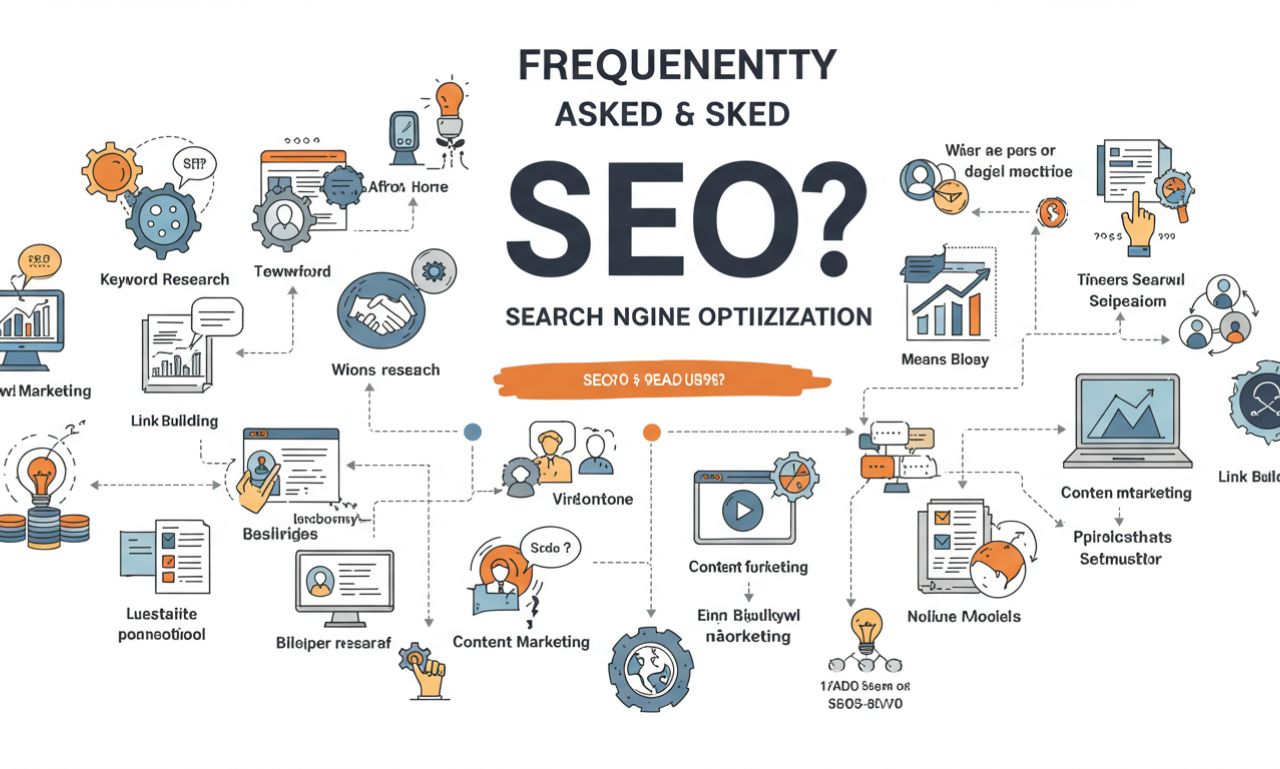The marketing landscape has drastically changed over time, as digital methods such as Social Media Marketing (SMM) or Search Engine Marketing (SEM) are preferred by most businesses now.
One of the inorganic ways businesses market themselves on the internet is SEO. It is mainly focused on optimizing your business website for search engines. It’s because reports show that 70,000 search queries are generated on Google every second, and for businesses, it means traffic.
Below, I’ll answer some of the most frequently asked questions about SEO. So, if you’re a business that is clueless about SEO, you’ve come to the right place.
Without further ado, let’s get started.
What is SEO?
SEO stands for search engine optimization, and it is a digital marketing strategy to improve your website’s ranking on search engines such as Google, Bing, Yahoo, etc. Globally, businesses implement SEO strategies to drive organic traffic from search engines to their websites.
How Does SEO Work?
SEO is a set of different activities that involves optimizing your website’s content for search engines and improving your website’s metrics, such as loading speed, structure, and other technical factors.
What Are the Types of SEO?
There are three major types of SEO, which include Off-Page, On-Page, and Technical SEO. While these are the three core pillars, there are other optimization strategies like Image, Video, Mobile, eCommerce, and Local SEO.
What is Off-Page SEO?
In Off-Page SEO, no direct work is done on the website itself, and it is crucial in improving its ranking on the search engines. It involves creating backlinks on high-traffic and authority websites. Moreover, it may also involve sharing the website’s content on social media platforms to redirect users to your website.
What is On-Page SEO?
On-page SEO is directly related to the website, as it involves optimizing the website’s content, such as ad copies, on-page blogs, resources, call-to-action buttons, internal linking of web pages, and more. Its purpose is to make your website helpful for users and create its authority in the eyes of search engines.
What is Technical SEO?
Technical SEO involves the back-end activities of the website. A website’s loading time, web page speed, indexing, structure, schema, and more, are optimized in technical SEO to make it rank higher on the search engines.
What Is Keyword Research in SEO?
Keyword research involves identifying relevant short and long-tail keywords that people use to find information on search engines. Businesses use those keywords to write high-quality content and increase their chances of ranking higher on search engines.
Are There Any Tools for SEO?
There are numerous tools, such as SEMrush, Ahrefs, or Screaming Frog, available to perform SEO activities on your website. From conducting keyword research to performing website audit for technical errors, these tools can help in all SEO related tasks.
How to Effectively Set Up SEO for Business?
Create and list your business through a Google Business Profile first. Learn about effective SEO practices and research to create a roadmap. Make sure you have access to SEO tools like Screaming From, Ahrefs, and SEMrush, and a high-speed connection like Windstream Internet to run them seamlessly.
What Are the Factors That Affect SEO Rankings?
According to Google, there are over 200 ranking factors, but some of the most important ones are content quality, website optimization, and backlinks. Search engines identify and rank high-quality content pieces that satisfy the users’ intent. Websites with fast website speed and proper structure, schema, and internal linking rank higher. Quality backlinks are incredibly important to rank a website higher on search engines.
What is SERP?
SERP stands for Search Engine Results Page, and essentially, it is the page where results are displayed when a user enters a query. Besides organic results, SERP also displays the “sponsored” or paid ads results.
Is SEO Expensive?
No, unlike other digital marketing strategies like Pay-Per-Click (PPC) advertising, SEO is much cheaper and may not require a huge upfront investment.
How Much Time Does It Take for SEO to Work?
Generally, it may take up to six months to a year to see the results of your SEO strategies. However, this timeframe can vary as SEO depends on factors such as keyword difficulty, website history, quality backlinks, etc.
Why Is SEO Mostly Done on Google?
According to reports, more than 94% of internet users use Google as their primary search engine. Hence, most businesses only focus on optimizing their website according to Google’s algorithms.
Do Google Algorithms Affect a Website’s SEO?
Yes, Google algorithms are incredibly important as they may determine a website’s position on the Search Engine Results Page (SERP).

